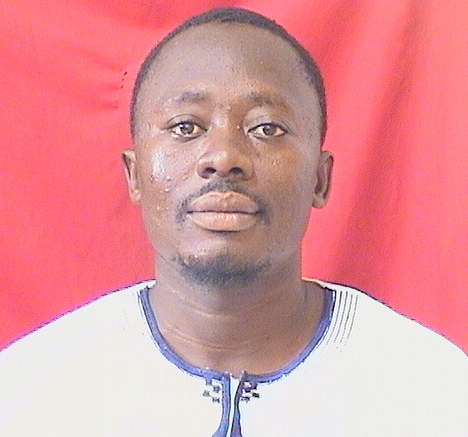Research Projects (Current and Past)
|
i. |
Mechanical performance of natural material reinforced composite behaviour (2019 – Date). This work explores experimental studies of the mechanical and physical properties of reprocessed polyethylene (PE) waste as reinforcement in laterite bricks for sustainable building applications. The bricks are produced with different volume fractions and particle sizes of reprocessed polyethylene particles to ascertain whether reinforcing cement or laterite matrix will result in improved strength and fracture toughness of the composite bricks. The outcome of this study will help to reduce cost of building materials and also help to solve the environmental nuisance caused by polymer wastes.
|
|
ii. |
Cost-effective approach of surface hardening of ferrous materials (2017 – Date). This study investigates effect of cost effective bio-pack cyaniding parameters on the microstructure, hardness and wear properties of ferrous metals (steels and cast iron). The main objective of the project is to study the effects of heat treatment on the surface hardness and wear behaviour of ferrous metals (steels and ductile irons). The surface hardening procedure will be achieved using a novel bio-pack cyaniding process that involves the use of cyanide-based ground cassava leaves and barium carbonate energizers. The work also seeks to investigate the theoretical and experimental studies of carbon and nitrogen concentration profiles and case depths in bio-pack cyaniding process. Furthermore, this study involves the deformation behaviour of surface hardened steels, development of novel quenchant for improved surface hardening and mechanical properties characterization (nano-/macro-wear and hardness) of steels.
|
|
iii |
Spatial Patterns of Hazardous Cyanide in Soils and Groundwater in a Cassava Processing Area. (2019 – Date). This study is conducted with a GH? 30,000.00 KNUST Research Fund (KReF) support. The study examines spatial distribution of cyanide concentrations in soil and groundwater at cassava processing site in Ghana. The physicochemical quality (cyanide, acidic, electrical conductivity (EC), dissolved oxygen, biological and chemical oxygen demand) of cassava processing effluents that are discharged onto land and surface water at the study site is investigated. Also, pH, EC, soil organic matter and cyanide contents in soils and underground water of the study area will be extensively studied using geostatistical approaches combined with geographic information system (GIS) analysis. Furthermore, this study will determine and analyse pollution load index (PLI) and geo-accumulation index (Igeo) of cyanide concentration. Afterwards, an innovative treatment method will be developed to remove the potentially toxic cyanide from cassava effluents using zeolite produced locally from available anthill clays.
|
|
iv. |
Materials Selection for Corn Mill Plates and PVC pipes (2018 – Date). This research work focuses on the use of computer-aided selection and weighted property methods to identify alternative materials for locally produced grey cast iron corn-mill plates and PVC pipes. The corn-mill plates are prone to corrosion and abrasive wear resulting to contamination of milled corn which is consumed by humans. This research seeks to identify new materials that are resistant to corrosion and wear by considering requirements such as non-toxicity, good corrosion resistance, good wear resistance, low friction coefficient, high thermal conductivity, low specific gravity, high compressive strength and low cost. Also, the research on materials selection for PVC pipes focuses on the use of multi-objective decision-making approach to choose alternative material that is non-toxic, corrosion resistant, cheap, UV radiations resistant and tough. This study will help to solve regular bursting of PVC pipes that are exposed by land erosion that poses great worry to consumers and water distribution companies.
|
|
v. |
Remediation of heavy metals in contaminated soil (2017 – Date). This study seeks to evaluate the hyperaccumulation potential of four indigenous plant species: Chromolaena ordorata (CO), Paspalum viginatum (PV), Chrysopogon zizanioides (CZ) and Cynodon dactylon (CD) using soil polluted by the illegal gold mining activities. The soils’ physico-chemical properties and the concentration of some selected heavy metals and metalloid (As, Cd, Cu, Ni and Pb) will be determined. Also the study will monitor plant growth and dynamics of pH, electrical conductivity and heavy metals and metalloid in the gold ore mined soil to ascertain bioaccumulation and translocation potentials. |

